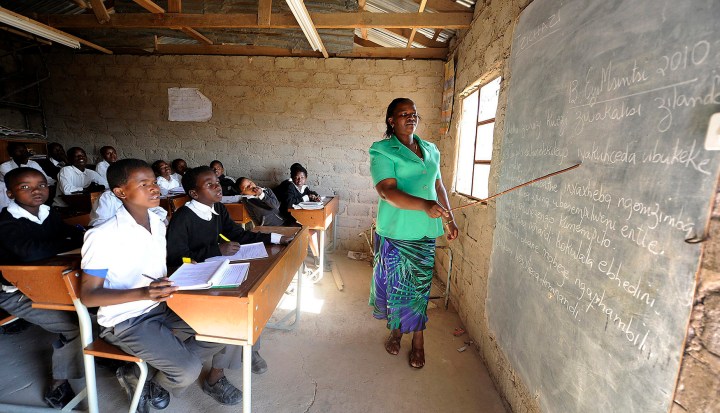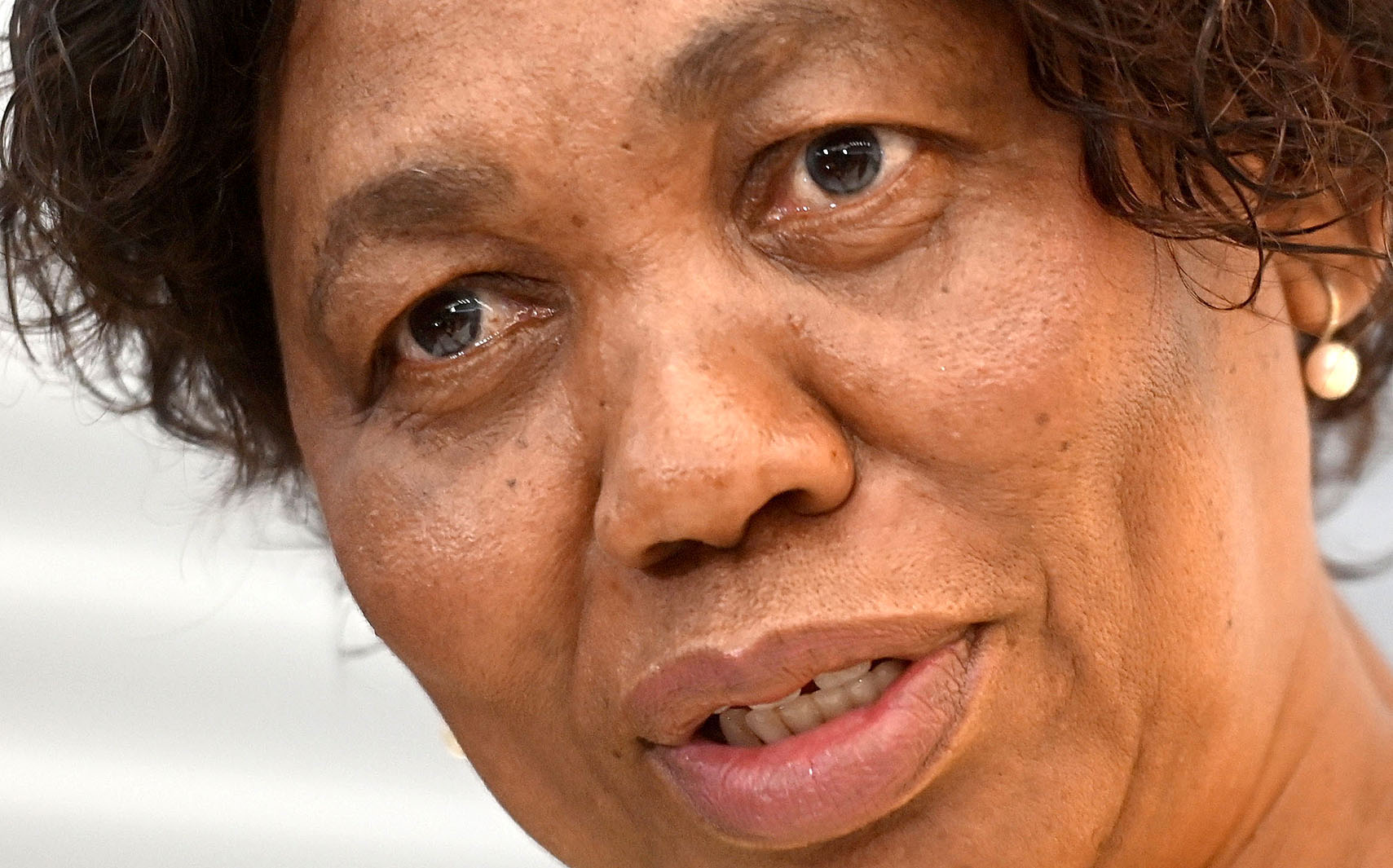CLASSROOM CRISIS
Upcoming mass teacher retirement poses ‘serious’ problems, with Maths and under-resourced provinces most at risk – experts

The coming retirement wave will create a critical teacher shortage, but this problem will be complicated by other factors – and poor schools will be hit hardest, the experts say.
The impending retirement of almost half of South Africa’s teachers in the next decade throws up a number of huge challenges, according to Stellenbosch University (SU) education economist Professor Servaas van der Berg.
“While there’s no shortage of teachers, the main issue is having teachers with appropriate qualifications in the desired locations,” he said.
This situation was complicated by the disparity in the supply of secondary and primary school teachers, with an excess in the former and a shortage in the latter.
His concerns, and those of other experts, were prompted by a study by SU’s Research on Socio-Economic Policy (ReSEP) group, which points to a worrying rise in the proportion of older teachers.
Read more in Daily Maverick: Half our teachers will retire by 2030 — what about those who’ll remain?
Provincial human resource departments face a crucial challenge in managing appointment processes efficiently, Van Der Berg said.
“Budgetary constraints in provinces over the past years have hindered the hiring of additional teachers, which is essential to keep up with growing enrolments.”
The government’s fiscal limitations made it challenging to expand the workforce while managing debt responsibly.
Impact on provinces
Teacher retirements, Van Der Berg said, are likely to affect schools differently based on their location and resources.
Rural schools and those in less-affluent provinces, such as Limpopo and the Eastern Cape, were expected to bear a greater burden compared with Gauteng and the Western Cape, which could more easily attract teachers.
Specialised positions, such as in science and mathematics, may be most challenging to fill.
“The issue is serious, especially in provinces that struggle to attract teachers. The growing school enrolment exacerbates the problem, increasing the demand for teachers in higher grades. This places additional pressure on provinces’ already strained budgets,” he said.
Enter SGBs
Van der Berg said school governing bodies (SGBs) need to advertise positions widely, especially for specialist teachers.
“The current job market dynamics might make it easier to find willing teachers, but the challenge remains in matching teachers’ qualifications with the schools’ needs.”
Most aspiring teachers had little information about the positions available nationally and particularly in districts or provinces that were not close to where they were. It was therefore crucial to improve dissemination of information about available posts.
Governing Body Foundation CEO Dr Anthea Cereseto said the loss of experienced teachers was felt acutely, but particularly by schools that have been working hard to ensure learning takes place.
“On the other hand, if they were people just riding it out until retirement, the schools might be better off with new, enthusiastic teachers, trained in new content and pedagogical knowledge,” she said.
The problem would appear to be a shortage of teachers in the more challenging subjects and in the higher grades.
Teachers leaving at retirement age was predictable and the system ought to be prepared for that – if there were shortages, there was a need to look at the causes. “Teaching may be seen as an unrewarding career with little prospect of keeping up with fellow professionals.”
High-achieving students chose more profitable careers with fewer interpersonal and safety challenges.
Read more in Daily Maverick: Provinces aren’t hiring enough teachers, despite a growing need and sufficient supply – Stellenbosch university report
The problem, Cereseto added, “would appear to be a shortage of teachers in the more challenging subjects and in the higher grades” – universities might be training too many teachers in subjects where there was an oversupply.
“We are also concerned that some experienced teachers and principals are retiring early because they are burned out.” This “is another issue which must be faced and not skirted around”.
National Association of School Governing Bodies General secretary Matakanye Matakanya said the Department of Basic Education (DBE) needed to plan properly because teachers need to retire when reaching a particular age.
“Without proper planning, there will always be problems.”
He said there is no shortage of teachers but the curriculum must match the country’s economic development.

Minister of Basic Education Angie Motshekga. (Photo: Gallo Images / Beeld / Deaan Vivier)
Minister’s reply
Earlier this year, IFP MP SL Ngcobo asked in Parliament about whether measures had been put in place to address the retirement of 17,300 teachers in 2029, who constitute 49% of teachers over the age of 50. The average overall attrition rate of teachers in public schools is between 3% and 5%.
In reply, Basic Education Minister Angie Motshekga said this was relatively low by international standards and suggested a high retention rate overall.
Read more in Daily Maverick: Revealed — Angie Motshekga’s reading plan failed SA’s children through poor planning and evaluation
Her department, through its internal analysis and collaborative research with the Department of Higher Education and partners, such as ReSEP, had taken note of the retirement wave in the next 10 or more years and they were working closely to address it.
“The research into the retirement of South African teachers was also done by the ReSEP, which acknowledged that South Africa’s universities appear prepared to deal with the retirement of teachers, and that university output is on a sound trajectory, and should be able to deal with a demand for a larger workforce,” she said.
In anticipation of the high number of new entrants into the system, her department would intensify the roll-out of a comprehensive induction programme.
“In short, the programme provides holistic support to new teachers, covering not only personal development, but professional and social support.”
This programme would ensure the smooth assimilation of young teachers into the system.
DBE spokesperson Elijah Mhlanga has not yet responded to Daily Maverick’s specific questions sent to him on 7 December 2023.
Research
The ReSEP study, “Provincial Educator Demand Projections for South Africa 2021-2030”, by Bianca Böhmer and Martin Gustafsson, says the proportion of older teachers rose between 2012 and 2021.
In part, there was a concentration of teachers over the age of 50, with a peak at 53 (in 2021).
“As a result, the number of educators retiring (for the purposes of this analysis, this is defined as any educator aged 56 or older leaving the public education system, even though this includes educators that leave due to resignation, illness, death or other reasons) will increase in the coming years,” the study reads.
This concentration of older teachers was more pronounced in more rural provinces, particularly Limpopo and the Eastern Cape.
“Across provinces we also see that there is a higher concentration of older educators in primary schools. It is therefore expected that the impact of increasing retirements will be felt most in more rural provinces and in primary schools.”
The coming retirements would not only open up teaching posts, but school management and leadership positions such as principals, deputy principals, heads of departments and other office-based education specialists.
Read in Daily Maverick: Meet SA’s best teacher Gugu Precious Qwabe who believes many SA educators exist in survival mode
“If these positions are not filled, this could result in a further deterioration in the learner-educator ratio and lead to further increases in class sizes beyond those seen to date,” the authors write.
“However, due to the change in age distribution, the average age of teachers (and therefore the average experience level) will continue to drop.
“Older, more experienced educators earn higher wages than entry-level teachers. Therefore, with a high number of retirements, if retirees are replaced by newly hired educators, this has the potential to bring down the average cost of educators, freeing up some fiscal room to manoeuvre with the proposed budget.”
The study can be found on SU’s Teacher Demographic Dividend website – a research project focused on South Africa’s needs for teachers in the next decade and beyond. DM




















With regard to the increase in recent years in the number of teacher graduates, leading to what in immediate terms is an over-supply, in 15 years we may well conclude this was a good thing. Our projections show that the reserve pool of graduates we currently have will soften the pressure on universities in future years to increase outputs further in response to the retirement wave. Put differently, without this reserve pool, universities may simply not have had enough capacity to train sufficient teachers over the next decade. Incidentally, it’s fewer than half of teachers who will retire in the next ten years. Our model points to around 40% of publicly employed educators in 2023 having left by 2033 due to age-related factors, mostly retirement. Without our bulge of older educators, that figure could have been a lower 15% Another thing: it’s clear that there is an under-supply of primary teachers and a very large over-supply of teachers trained for the secondary level – see the DHET series of reports headed “Trends in Teacher Education” and compare level-specific supply stats to what’s in the demand projections. Work is currently proceeding on analysis of specialisation-specific demand-supply mismatches. That’s obviously important.
The DBE should consider increasing the retirement age of serving teachers, incentivise acceptance of less attractive teaching environment like in rural areas, draw from retired or teachers who’ve exited the system and lastly prevent teacher unions swelling the recruitment and hiring process of teachers.